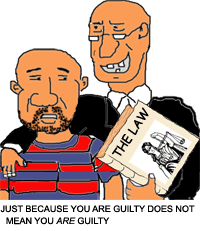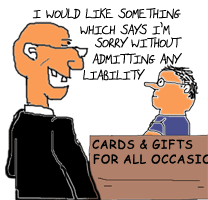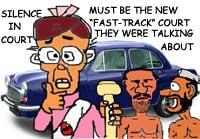
The author laments that while the Income Tax Appellate Tribunal is globally recognized as one of the best tax tribunals for its independence and competence, its reputation at home is under a cloud owing to the allegations of corruption. He makes a fervent plea that the Bench and the Bar has to play a positive role to maintain the dignity, sanctity and integrety of the Tribunal. He also outlines a few suggestions towards this end.
1. Courts and Tribunals are temples of justice. They are viewed with great sanctity and reverence. The Income Tax Appellate Tribunal is in existence for more than 67 years and is one of the oldest temples of justice in our country. Recent CBI raid on the residence of the sitting member of the ITAT has shaken the faith and confidence as well as sullied the reputation of this great institution. The Federation is of the opinion that there has to be speedy and impartial examination of the entire episode. If it is held to be a frame up, the member concerned should be reinstated with dignity and Bar should make sincere attempt that such incidents do not recur. On the other hand if it is found that the incident to be correct, the Bar and Bench will have to play a positive role to eradicate the cancer of corruption from the institution. There has to be national debate and like minded people and members must come together and try to find a workable solution for eradicating the seeds of corruption from the roots of the institution.

 Our Constitution provides for an independent and efficient justice delivery system. No doubt there are delays in disposing the tax matters. On analysing the causes for delay one will find that delay is not because of courts but it is due to tax administration. In tax matters 70% of appeals are by tax department.
Our Constitution provides for an independent and efficient justice delivery system. No doubt there are delays in disposing the tax matters. On analysing the causes for delay one will find that delay is not because of courts but it is due to tax administration. In tax matters 70% of appeals are by tax department.

 The judgement of the Delhi Bench of the Tribunal in
The judgement of the Delhi Bench of the Tribunal in  1. The State Commission, Delhi, by its order dated 10-3-2006 in Appeal No. 1815 of 2000 held that the services rendered by the Lawyer would not come within the ambit of Section 2(1)(o) of the Consumer Protection Act, 1986, as the client executes the power of attorney authorizing the Counsel to do certain acts on his behalf and there is no term of contract as to the liability of the lawyer in case he fails to do any such act. The State Commission further observed that it is a unilateral contract executed by the client giving authority to the lawyer to appear and represent the matter on his behalf without any specific assurance or undertaking.
1. The State Commission, Delhi, by its order dated 10-3-2006 in Appeal No. 1815 of 2000 held that the services rendered by the Lawyer would not come within the ambit of Section 2(1)(o) of the Consumer Protection Act, 1986, as the client executes the power of attorney authorizing the Counsel to do certain acts on his behalf and there is no term of contract as to the liability of the lawyer in case he fails to do any such act. The State Commission further observed that it is a unilateral contract executed by the client giving authority to the lawyer to appear and represent the matter on his behalf without any specific assurance or undertaking.
 There is a popular commercial by a furniture maker running on television which uses a courtroom as the setting to demonstrate the long-lasting abilities of its plywood. Two young lawyers are arguing a matter about a buffalo which apparently caused damages to the Plaintiff, prompting him to seek damages from the owner of the buffalo. The Respondent’s demand is that the buffalo, being the alleged culprit, must be produced in court as a witness, leading to an uproar in the court and prompting the judge to adjourn the matter. Months turn to years and decades go by and the lawyers and the judge, now sprightly octogenarians, are still at the same stage at which they were at the beginning of the case. The plywood table stands mute spectator to the going-ons in the court room with the voice-over saying tongue-in-cheek “Chalta Rahe, Chalta Rahe” (It goes on and on).
There is a popular commercial by a furniture maker running on television which uses a courtroom as the setting to demonstrate the long-lasting abilities of its plywood. Two young lawyers are arguing a matter about a buffalo which apparently caused damages to the Plaintiff, prompting him to seek damages from the owner of the buffalo. The Respondent’s demand is that the buffalo, being the alleged culprit, must be produced in court as a witness, leading to an uproar in the court and prompting the judge to adjourn the matter. Months turn to years and decades go by and the lawyers and the judge, now sprightly octogenarians, are still at the same stage at which they were at the beginning of the case. The plywood table stands mute spectator to the going-ons in the court room with the voice-over saying tongue-in-cheek “Chalta Rahe, Chalta Rahe” (It goes on and on).  Indian businessmen have made a remarkable achievements in the global business scenario, however, Indian professionals are yet to make the presence felt in the global scenario. Bar Council of India does not permit to have a partnership with chartered accountants profession or company secretaries. In the era of globalization apart from knowing the law, issues relating to Accountancy and Companies Act are very much essential for the mergers and acquisition. Therefore it is the time to think, why not permit all three professionals to come together and render the services under one umbrella. For appearing before the Court it can be stated that only lawyer partner can represent similarly, for audit certificate can be given by Chartered Accountant, and procedure relating to Companies Act may be handled by the Company Secretary. If all three professionals are allowed to have partnership it will help to render better services and Indian professionals can meet the challenges of global competition. A thought for debate and consideration!
Indian businessmen have made a remarkable achievements in the global business scenario, however, Indian professionals are yet to make the presence felt in the global scenario. Bar Council of India does not permit to have a partnership with chartered accountants profession or company secretaries. In the era of globalization apart from knowing the law, issues relating to Accountancy and Companies Act are very much essential for the mergers and acquisition. Therefore it is the time to think, why not permit all three professionals to come together and render the services under one umbrella. For appearing before the Court it can be stated that only lawyer partner can represent similarly, for audit certificate can be given by Chartered Accountant, and procedure relating to Companies Act may be handled by the Company Secretary. If all three professionals are allowed to have partnership it will help to render better services and Indian professionals can meet the challenges of global competition. A thought for debate and consideration! We are still waiting with bated breath for the new Income-tax Code which was supposed to be released by December 2007. The Finance Minister P Chidambaram has said that the Code is an exercise of the future and is not aimed at amending the existing Income Tax Act 1961. “This report is about a brand new Income Tax Act, which if all goes well, will come into force from Apr 1, 2008, that is assessments made for 2009-10,” he said. He added that the new Act would hopefully come into force from April 2008 subject to Parliament approving it “well in time”.
We are still waiting with bated breath for the new Income-tax Code which was supposed to be released by December 2007. The Finance Minister P Chidambaram has said that the Code is an exercise of the future and is not aimed at amending the existing Income Tax Act 1961. “This report is about a brand new Income Tax Act, which if all goes well, will come into force from Apr 1, 2008, that is assessments made for 2009-10,” he said. He added that the new Act would hopefully come into force from April 2008 subject to Parliament approving it “well in time”.